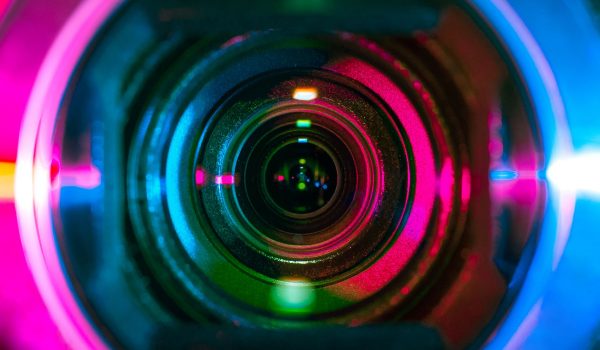A video from May 29, 2020, appears to show a Louisville Metro Police officer firing pepper bullets at Louisville WAVE 3 journalist Kaitlin Rust and her photographer, James Dobson. Unfortunately, this was only one of dozens of similar incidents recorded at protests across the country, with broadcast and print reporters entangled in police efforts to control the situation and sometimes even being detained or arrested.
In this unprecedented environment, it is worth reiterating the scope of Kentucky broadcast reporters’ rights to cover these protests:
General right to report
- Reporters’ rights while observing a protest are generally the same as those of the people attending the protest. Like the general public, journalists have the right to attend and record events in public places. But they have no special rights that allow them to disregard police orders, pass barricades, or travel into restricted areas.
- Courts have mostly agreed that journalists have a First Amendment right to videotape police officers and other public officials while those officials are doing their jobs out in public. But again, this right is roughly commensurate with the public’s right to record police officers. It does not include any special rights to disregard official orders, to trespass, or to interfere with police.
- The Privacy Protection Act of 1980 protects a journalist’s work product from search and seizure by the authorities, except in cases where the police have good reason to believe that the journalist’s materials contain evidence of a crime.
- The police can exclude the press from a protest or crime scene just as the police can exclude the public.
- Journalists can be arrested if they trespass, violate a police order, or interfere with police action.
Searches, stops, and arrests
- Police can search journalists but only if they have probable cause to believe the journalists have committed a crime.
- Police can “stop and frisk” journalists if they believe the journalists are armed and dangerous; if police find evidence of the crime during the “stop and frisk,” they can proceed to a more invasive search.
- Police will have significantly more latitude to search/frisk journalists in the context of a violent protest than police would have under normal circumstances. This is because police do not need a warrant to make a search, seizure, or arrest in many emergency situations.
- However, even if the police have a reasonable basis for a search, in most cases, they cannot search a journalist’s mobile phone without a warrant. But they can take the phone and hold it pending a warrant.
Guidelines to follow
- Journalists should conspicuously display press credentials at all times.
- Journalists can enter restricted areas only if the police give them unequivocal permission to do so. Journalists’ activities in restricted areas may be limited by police orders.
- Media organizations should establish points of contact to assist journalists in the event of an arrest. The points of contact should be listed in order of priority. Journalists covering civil unrest should keep the contact list with them, which should include mobile phone numbers for each point of contact. The list should include the media organization’s news director, general manager and a media lawyer.
- Journalists should avoid physically touching or interfering with police officers.
- Journalists should remain calm and professional if approached by law enforcement, but firm if they are acting within their legal rights.
- If a journalist is situated in a public space where he or she is legally entitled to be, then he or she should keep reporting and filming, including any interaction with police. The video footage is often the best evidence that the reporter acted within the law.
- If placed under arrest, journalists should remain calm and cooperate even if they believe the arrest is unlawful. They do not want to give rise to new charges, such as resisting arrest or disorderly conduct.
In sum, Kentucky broadcast journalists have a right to report on the protests, but journalists should follow officials’ directions and prominently display their press credentials. Of course, this is precisely what Rust and Dobson were doing on May 29, 2020, so it may not absolutely guarantee journalists’ protection in the heat of the moment. But it will ensure they have the highest level of legal protection possible.
If any journalist is arrested, searched, or detained, the best practice in most cases will be for the journalist to cooperate and contact a lawyer as soon as possible. Any attempt to resist a search or seizure is likely to escalate the situation and may muddy the legal waters.
Be safe out there.

